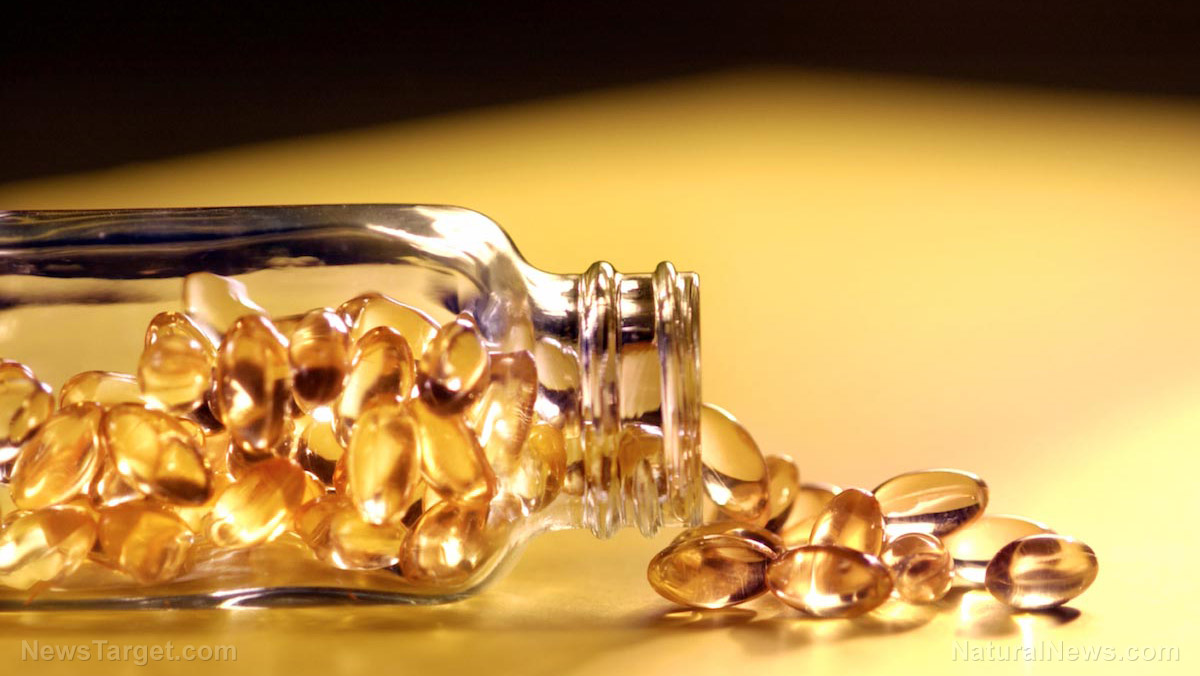Watch what you eat: Study reveals that post-menopausal women who eat a Western diet increase their risk of breast cancer
09/20/2019 / By Evangelyn Rodriguez

A person’s diet plays a huge role in determining their overall health. Multiple studies have shown how a diet influences many physiological functions, including immune function, which the body relies on for protection against diseases. For instance, a diet rich in fiber and plant-based foods brings longevity and keeps the body in tip-top shape. However, a diet loaded with carbohydrates from processed foods and sugar — also known as a Western diet — harms digestive health and increases the risk of premature death. In a recent study published in the journal Nutrition Research, researchers from Mexico and France reported the harmful effects of a Western diet on blood hormone levels, particularly in postmenopausal women. They revealed that a high intake of regular components of a Western diet increases serum estradiol levels, which is associated with a greater risk of breast cancer.
The link between the Western diet and breast cancer
According to the World Health Organization, good nutrition is a cornerstone of good health. Due to its importance, nutrition is extensively studied, particularly its relationship with diseases. However, despite the abundance of literature related to food consumption, its possible influence on serum concentrations of endogenous sex hormones is not fully understood.
In their study, the researchers hypothesized that the Western diet is associated with high serum concentrations of these hormones. To test this hypothesis, they collected data from 305 women who belonged to a control group of a population-based case-control study conducted in Mexico from 2004 to 2007. Their main objective was to determine the effects of the Western diet on serum concentrations of free estradiol and testosterone in postmenopausal women.
Using multiple linear regression models, the researchers compared the Western dietary pattern index value with log natural serum concentrations of both hormones. They reported that the median value for serum estradiol was 0.26 picogram per milliliter (pg/mL), while the median value for serum testosterone was 0.40 pg/mL. However, for each unit increase in the Western dietary pattern index, they observed a 16.2 percent increase in serum-free estradiol levels.
The researchers also observed that for each additional serving of chicken eggs per week, serum-free estradiol increased by 31 percent, while for each additional serving of red meat per week, free estradiol increased by 64.9 percent. On the other hand, free testosterone in serum was not influenced in any way by the Western diet.
Based on these findings, the researchers concluded that the Western diet increases serum concentrations of free estradiol. They believe that this is an important consideration and may have implications for the prevention of breast cancer. (Related: Is vitamin D a key factor in breast cancer prevention?)
Foods to eat and avoid to lower breast cancer risk
Up to 40 percent of all cancers can be attributed to diet. A poor diet, in combination with physical inactivity and poor weight management, increases the risk of breast cancer. Hence women, especially those who have already undergone breast cancer treatment, are urged to make dietary and lifestyle changes to prevent the development or recurrence of this deadly disease.
To reduce the risk of breast cancer, pre- and postmenopausal women should follow a healthy diet like the Southern diet or the Mediterranean diet. These dietary patterns include the following foods:
- High-fiber, antioxidant-rich fruits like apples and berries
- Cruciferous and allium vegetables like kale, onions, and garlic
- Legumes and pulses like peas and beans
- Good sources of omega-3 fatty acids like nuts, seeds, olive oil, and fish
- Soy-based products like tofu and edamame
On the other hand, foods that should be avoided include:
- Alcohol
- Foods with added sugar or artificial sweeteners
- High-fat foods
- High-sodium foods
- Processed foods
- Red meat
Prevention is better than cure, especially for diseases like breast cancer which don’t have an established cure. To reduce your risk, especially if you’ve already undergone menopause, adopt a healthy diet rich in plant-based foods and exercise regularly to maintain a healthy weight. Proper nutrition and an active lifestyle can go a long way.
Sources include:
Submit a correction >>
Tagged Under:
#nutrition, aging, Alcohol, breast cancer, cancer, chicken eggs, diet, estradiol, fast food, fruits, high-fat foods, legumes, Mediterranean diet, omega-3 fatty acids, physical activity, postmenopausal women, postmenopause, pulses, red meat, research, science, Sex hormones, sodium, Southern Diet, soy products, Testosterone, veggie, weight management, western diet, women's health
This article may contain statements that reflect the opinion of the author
RECENT NEWS & ARTICLES
COPYRIGHT © 2017 FOOD SCIENCE NEWS



















